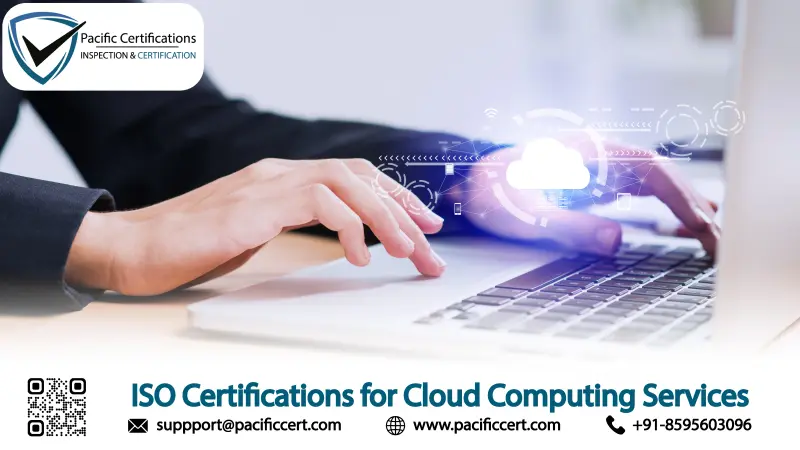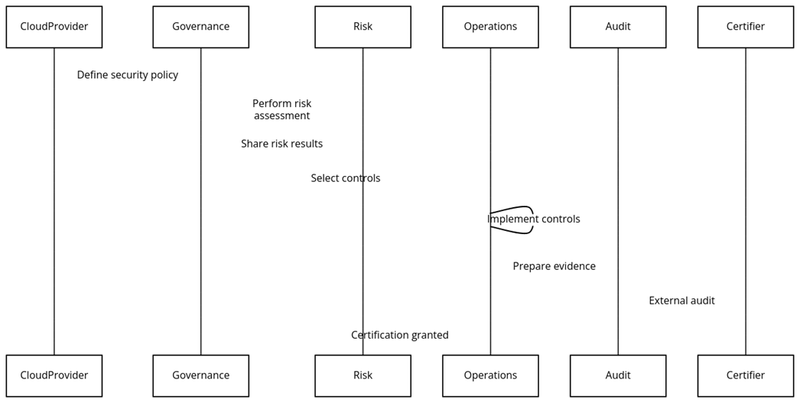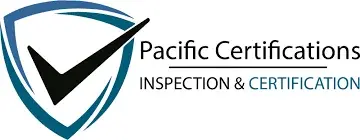ISO Certifications for Cloud Computing Services, Requirements and Benefits

Introduction
Cloud computing services now support daily operations for banks,7retailers, healthcare providers, manufacturers, and public sector teams that rely on SaaS, IaaS, and PaaS to run core workloads. As cloud adoption grows, buyers also demand stronger proof of cloud security, privacy controls, service reliability, and continuity planning. This is why searches such as ISO certification for cloud service providers, ISO certification for SaaS companies, and ISO certification for data centers show high buying intent.
Cloud providers also work in an environment shaped by tighter customer due diligence, stronger contractual security clauses, and the need to protect cloud data security across shared responsibility models. Keywords like ISO 27001 certification for cloud computing, ISO 27001 for cloud data security, and ISO certification requirements for cloud providers reflect what buyers ask when comparing vendors.
This blog explains the most relevant ISO standards for cloud computing services and how certification requirements translate into day-to-day delivery controls. Get started with your certification process for your cloud computing business, contact us at [email protected] today! When trust depends on evidence, ISO certification helps cloud teams prove secure and consistent service delivery.
Quick summary
ISO certification gives cloud computing services a structured way to manage information security, cloud security controls, service management, and continuity planning. The most relevant standards are ISO/IEC 27001 (information security), ISO/IEC 27017(cloud security), and ISO/IEC 20000-1 (IT service management), with additional options like ISO/IEC 27018 (cloud privacy) and ISO 22301 (business continuity) for providers handling sensitive workloads and uptime commitments. Certification strengthens trust with enterprise clients and partners in a fast-changing cloud market.
Applicable ISO standards for cloud computing services
Cloud service providers deliver multi-tenant platforms, manage third party dependencies, run data centers or hyperscaler deployments and rely on ticket-based operations. ISO standards help convert these realities into controlled processes with clear roles, records and internal checks. Below are the key standards applicable:
Click here to find out more applicable standards to your industry: Pacific Certifications blogs
ISO/IEC 27001 for cloud computing services (information security)
ISO/IEC 27001 is the baseline standard for an information security management system and is widely requested in cloud vendor onboarding. It helps cloud teams identify risks across cloud consoles, privileged access, APIs, keys, backups, monitoring and third-party providers. It supports role-based access, access reviews, logging discipline, incident response steps, supplier checks and evidence that controls work. This is why ISO 27001 certification for cloud computing and ISO 27001 implementation guide for cloud services are high intent searches for providers selling to enterprise clients.
Read more:ISO/IEC 27001 certification
ISO/IEC 27017 for cloud computing services (cloud security)
ISO/IEC 27017 provides cloud specific security controls and guidance for both cloud service providers and cloud customers. It helps formalize shared responsibility expectations, cloud configuration discipline, tenant separation and operational controls tied to cloud service delivery. Providers often use it to answer security questionnaires that ask for cloud specific controls beyond general ISMS evidence. This is why ISO 27017 cloud security certification and ISO 27001 and ISO 27017 together are common searches when buyers want clarity on cloud assurance.
Read more: ISO/IEC 27017 certification
ISO/IEC 27018 for cloud computing services (cloud privacy)
ISO/IEC 27018 focuses on protection of personal data in public cloud environments. It supports stronger privacy controls for SaaS providers and public cloud workloads where personal data is processed, stored, or transferred. It helps with transparency expectations, limits on data use, processor controls and privacy aligned handling routines that clients often request in contracts. Keywords such as ISO 27018 cloud privacy certification, ISO 27018 for cloud data protection and ISO certification for cloud security and privacy reflect this demand.
Read more: ISO/IEC 27018 certification
ISO/IEC 20000-1 for cloud computing services (IT service management)
ISO/IEC 20000-1 is a strong fit for cloud teams running service desks, SLAs and operational support. It strengthens incident management, change approval, release controls, problem management, configuration management and service reporting. For cloud computing services, this helps prove predictable response and restoration routines, especially for managed cloud services, hosting and SaaS platforms. This aligns closely with ISO 20000-1 certification for IT services and ISO certification process for cloud computing searches.
Read more: ISO/IEC 20000-1 certification
ISO 22301 for cloud computing services (business continuity)
ISO 22301 supports continuity planning for disruptions such as cloud region outages, upstream provider incidents, critical tool failure, or staffing disruptions in operations teams. It supports business impact analysis, recovery priorities, tested response steps and alternate operating arrangements. Buyers often link continuity expectations to uptime commitments and ask for evidence tied to ISO 22301 business continuity for cloud services during procurement.
Read more: ISO 22301 certification
What are the requirements for ISO certifications for cloud computing services?
ISO certification is not just about passing an external audit; it requires cloud computing services to put structured systems into practice. Common requirements include:

Defining scope: Define what is covered such as SaaS platforms, IaaS services, PaaS platforms, managed cloud operations, data center operations and support functions across locations.
Policies and commitments: Set policies for information security, cloud security responsibilities, privacy handling where applicable, service management commitments and continuity readiness.
Risk assessment: Identify risks such as misconfiguration, privileged access misuse, key leakage, tenant isolation failure, supplier dependency, monitoring gaps, incident response delays, backup failure and outage impact.
Documented processes: Maintain written procedures for access control, change approval, secure configuration, patch routines, incident response, customer onboarding, supplier review, service desk handling and recovery routines.
Staff training: Train teams on access hygiene, incident reporting, cloud security responsibilities, privacy handling and service desk discipline.
Record keeping: Maintain logs for access reviews, change approvals, incident tickets, backup checks, monitoring alerts, audit findings closure, supplier checks and SLA reports.
Monitoring and internal audits: Track KPIs such as incident trends, SLA response, change success rate, security findings closure and audit findings, then review results through internal audits and management review.
Tip: Cloud providers often start with ISO/IEC 27001 to meet onboarding expectations for cloud data security. Adding ISO/IEC 27017 supports cloud specific controls and shared responsibility clarity. For SaaS teams processing personal data, ISO/IEC 27018 supports privacy controls, while ISO/IEC 20000-1 strengthens service desk and SLA delivery.
What are the benefits of ISO certifications for cloud computing services?
ISO certifications bring significant benefits to cloud computing services. These include:
Stronger customer trust during onboarding through ISO certification for cloud service providers.
Better protection of cloud data security using ISO 27001 for cloud data security controls.
Clearer cloud control proof through ISO 27017 cloud security certification for cloud specific responsibilities.
Stronger privacy proof using ISO 27018 cloud privacy certification when personal data is processed.
More predictable service operations through ISO 20000-1 certification for IT services controls for incident and change handling.
Better readiness for outages through ISO 22301 business continuity for cloud services planning.
Improved vendor and supplier oversight, including subcontractors and upstream cloud dependencies.
Stronger sales positioning for buyers comparing affordable ISO certification for cloud services options and proof of control maturity
ISO Certification cost for cloud computing services
ISO certification cost for cloud computing depends on scope size, number of cloud services in scope, number of locations, staff count and standards selected. Integrated programs that combine ISO/IEC 27001 and ISO/IEC 27017 together with service management or privacy controls usually require more audit days because evidence sampling increases. Costs also depend on how mature your change control, ticket handling, access review routines and supplier controls are before the certification audit. For teams seeking affordable ISO certification for cloud services, a clear scope and disciplined evidence packs usually reduce rework and keep audit effort predictable.
ISO certification timeline for cloud computing services
ISO certification timeline for cloud computing services varies based on readiness and scope. Many providers move faster when they already use ticket-based workflows, have stable change approval routines and maintain access review evidence. The external certification audit typically runs in two stages, with Stage 1 focused on documented system review and readiness and Stage 2 focused on verification of real implementation through records and interviews. Multi-site scopes and multiple standard combinations usually take longer because more sites and more controls must be sampled.
How Pacific Certifications can help?
Pacific Certifications, accredited by ABIS, audits and certifies cloud computing services of all sizes. Whether you operate as a cloud service provider, a SaaS company, a managed cloud services team, or a data center linked service operator, we provide independent third-party certification audits that help you align with ISO standards and gain recognition from clients and partners.
Here’s why cloud computing services should choose us for their ISO certification needs:
Our auditors cover cloud and IT service scopes that match SaaS, IaaS, PaaS and managed cloud delivery models.
We provide clear audit plans and transparent audit reports aligned to the standard requirements.
We support integrated certification audits for combinations such as ISO/IEC 27001 with ISO/IEC 27017 and ISO/IEC 20000-1
We schedule audits with operational realities in mind, including remote evidence review where applicable.
We support certification cycle needs including surveillance audits and recertification audits.
We align evidence checks to real cloud control areas such as access reviews, change approvals, incident tickets, backup checks and supplier oversight
Contact us
If you need more support with ISO certifications for your cloud computing services business, contact us at [email protected].
Author: Alina Ansari
Read More At: Blogs by Pacific Certifications

